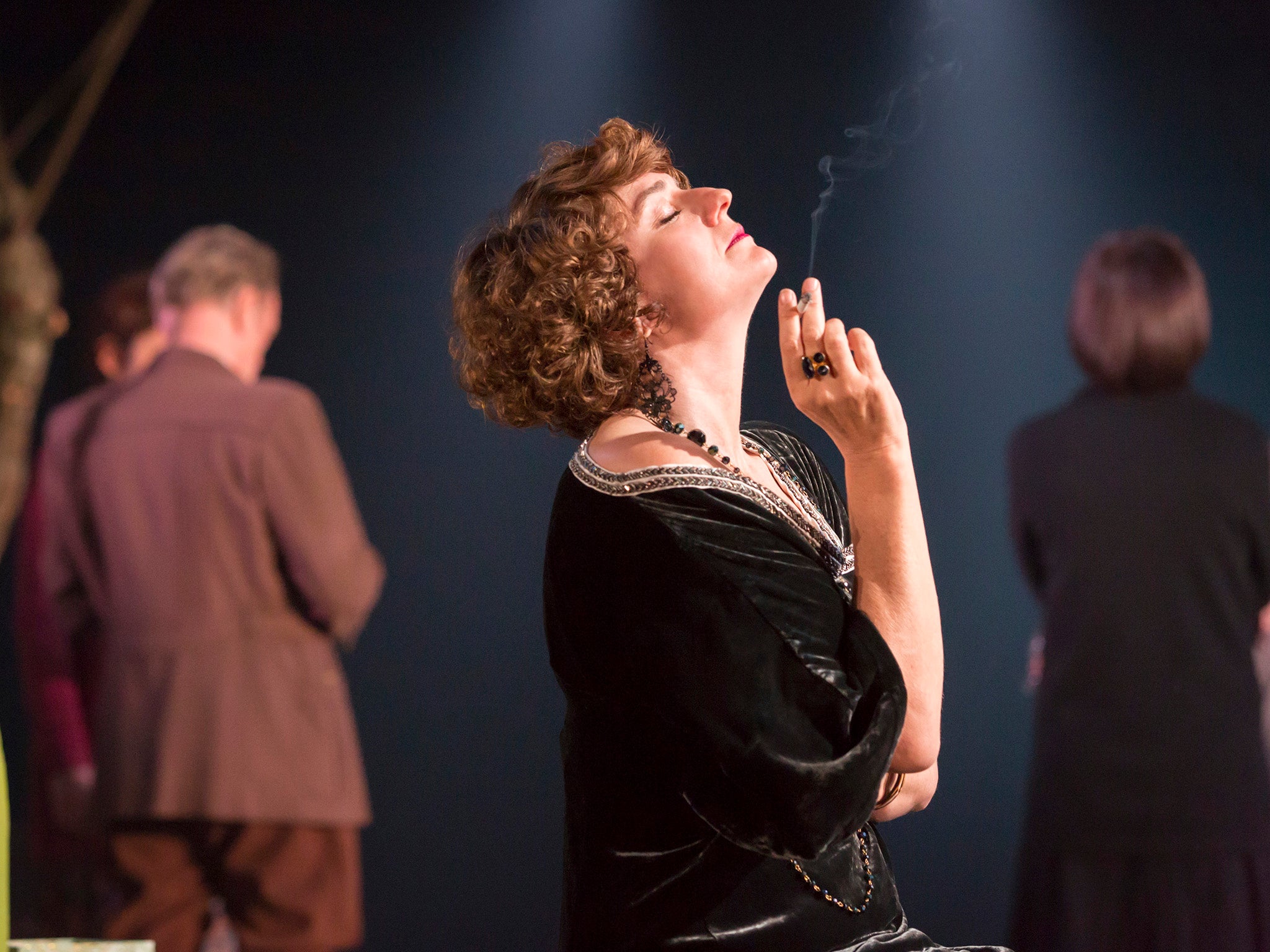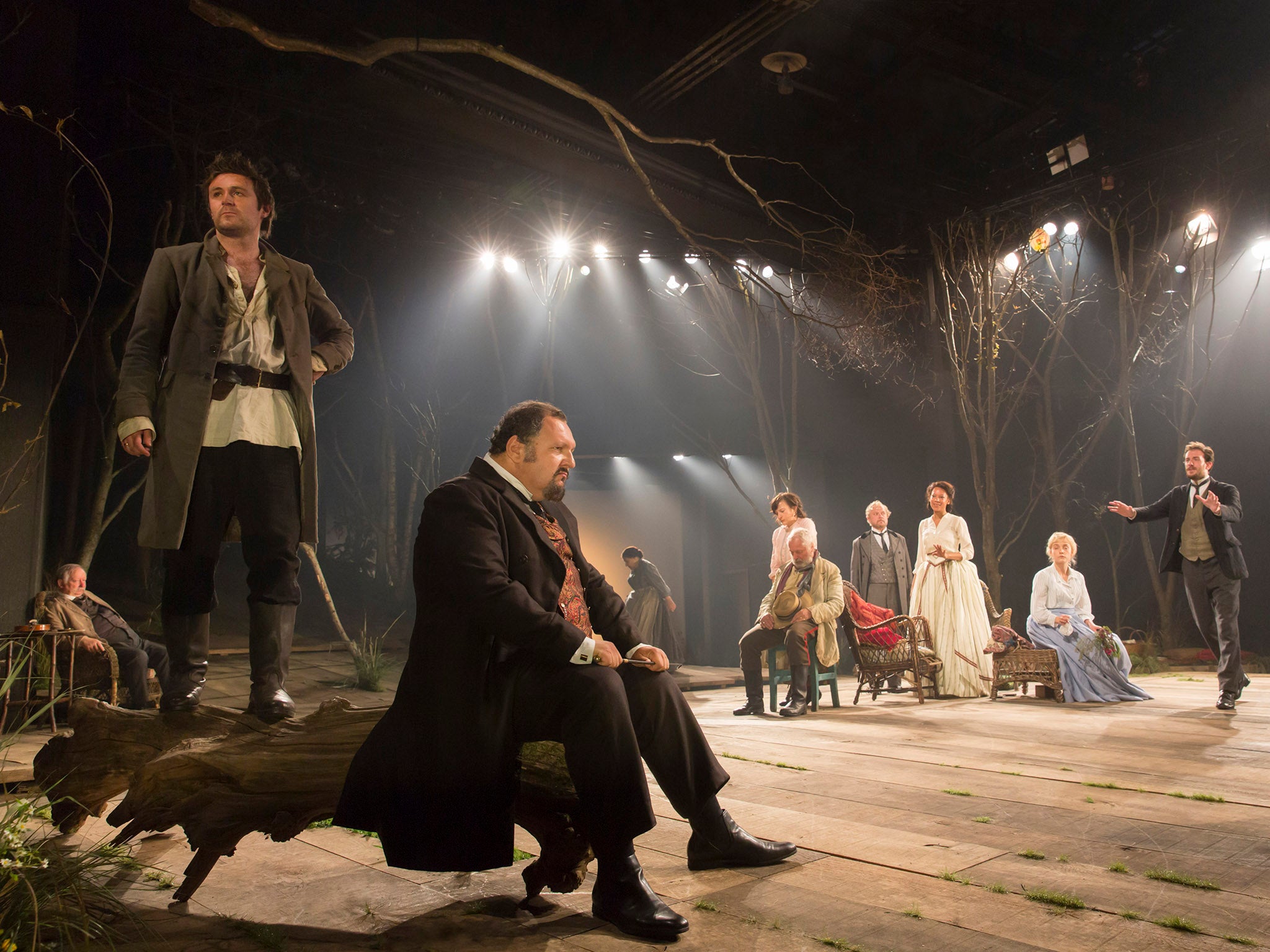Young Chekhov: The Birth of a Genius, Chichester Festival Theatre review: A 12-hour triumph
It will be a crime against life if Young Chekhov doesn't transfer

Your support helps us to tell the story
From reproductive rights to climate change to Big Tech, The Independent is on the ground when the story is developing. Whether it's investigating the financials of Elon Musk's pro-Trump PAC or producing our latest documentary, 'The A Word', which shines a light on the American women fighting for reproductive rights, we know how important it is to parse out the facts from the messaging.
At such a critical moment in US history, we need reporters on the ground. Your donation allows us to keep sending journalists to speak to both sides of the story.
The Independent is trusted by Americans across the entire political spectrum. And unlike many other quality news outlets, we choose not to lock Americans out of our reporting and analysis with paywalls. We believe quality journalism should be available to everyone, paid for by those who can afford it.
Your support makes all the difference.There's rather brilliant; brilliant; and landmark-brilliant. I have no hesitation whatsoever in assigning to the last category David Hare's inexhaustibly rich and game-changing adaptations of three of Chekhov's early plays – Platonov (1880), Ivanov (1887), The Seagull (1897). You can see them now either as individual works in rep or in the heady fell swoop of all-day marathons. The director is Jonathan Kent who has achieved many of his finest productions at this address, not least the Gypsy with Imelda Staunton, now in the West End.
It will give you some idea of how far the tone here has been superbly shifted from the cliched idea of Chekhov as a look-back-in-languor merchant to say that the productions are bonkers with talent - thrillingly energised, amped-up and judiciously camped-up to flesh-out Hare's contention that these works invite a double response. They deserve to be recognised for their actual look-back-in-anger radicalism and for their separate qualities. Here, they seem to be spinning in the exhilarating energy of their own one-off existence and at the same time, there's a sense of evolution. To see The Seagull, the most consciously experimental drama (with a failed would-be experimental dramatist at its centre) after watching the two earlier works is to come to it having experienced its intricate hinterland, in the same way that Richard III comes across as a more complex proposition when seen as the monstrous outcome of the three parts of Henry VI.

Speaking as someone who negotiates life while entangled with bipolarity, I'm all too aware why the collective noun for depressives is not “a delight”. But these plays show how acutely Chekhov recognised, ahead of Beckett, that in the latter's words,”nothing is funnier than unhappiness”. That factor allows the current project to rise above the potential marketing headache of the trilogy's recurring elements: all the plays focus on a sufferer from the Black Dog and end in a fatal gun shot. What internal variety though and what sheer analytic vigour in laying bare the reciprocal relationship between an alienated melancholic and a stultified, philistine antisemitic society.
To say nothing of the breathtaking performances. In the Rylance era, James McArdle strikes me as the most stunningly gifted performer to have emerged since the advent of Eddie. He plays two parts. He brings virtuoso instinctive comic timing and a hilariously manipulative boyish Scots charm as Platonov, the school teacher who is a charismatic accidental ladykiller and a failed revolutionary like some hapless cross between Hamlet and the Norman of Ayckbourn's Norman Conquests. Slicked back and shaved, he portrays the almost nihilstically officious Doctor Lvov in Ivanov, uncannily hinting at warped continuities between the two characters. Sam West is unforgettably authoritative as the clinically depressed Ivanov wrestles with the agonising conundrum of depression: how to disentangle what is pitiable, pitiful and pitiless in the contagion of this condition. There are outstanding performances throughout from the actresses – especially from Nina Sosanya who is delectable conveying the arch witty intelligence and the comically ignominious of Anna Petrovna's for Platonov and heart-stopping portraying the dismay of Ivanov's Jewish wife when se discovers that her spouse is also infected with aggressive anti-semitism.
A railway track plays an inspired tragicomic role. The whole experience is a 12-hour triumph. It will be a crime against life, if Young Chekhov doesn't transfer.
Join our commenting forum
Join thought-provoking conversations, follow other Independent readers and see their replies
Comments